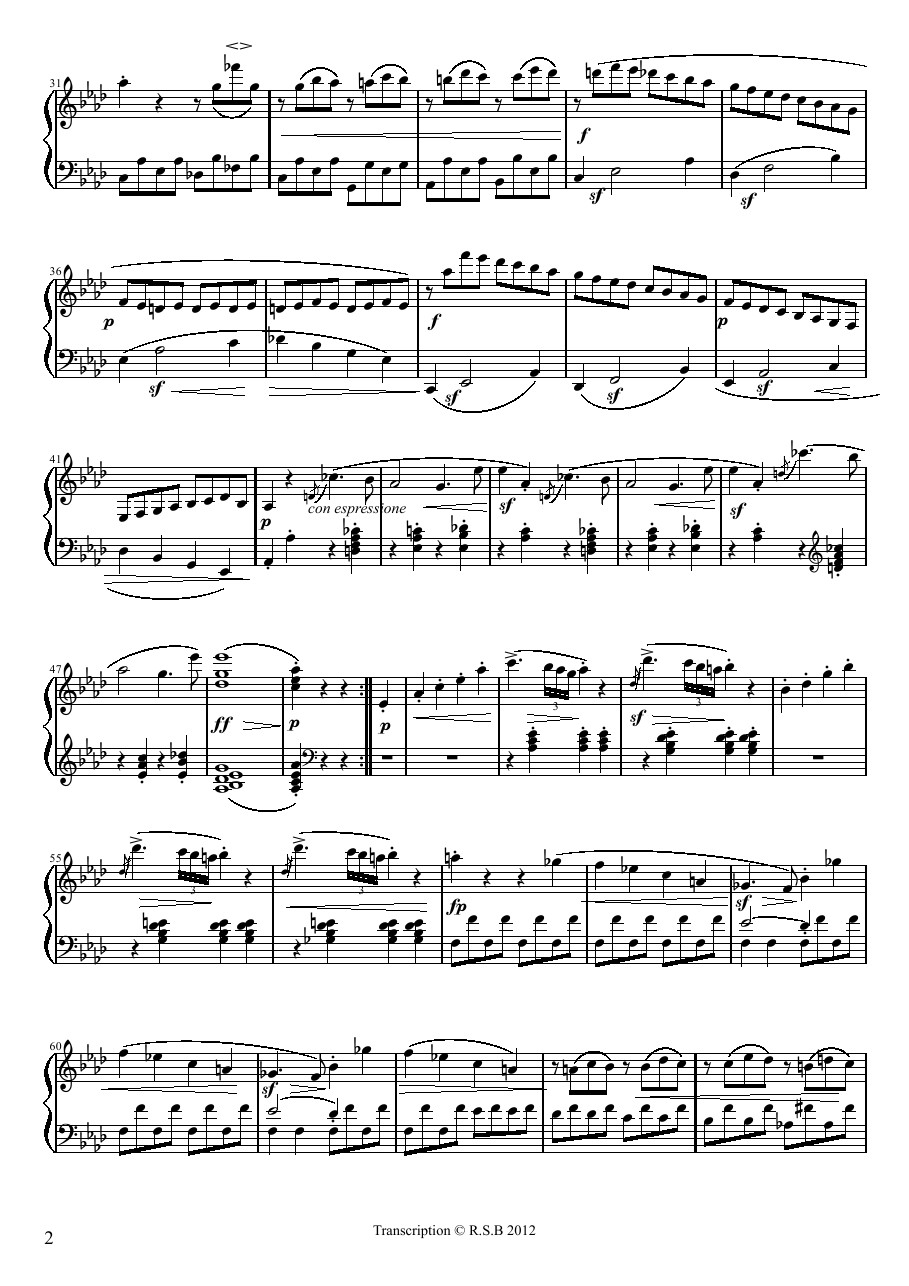For Online Piano Lessons please click here
Need help determining your piano skill level?
Below you will find a guide to help you assess your piano proficiency level. The links accompanying each description will take you to the related music scores and recordings.
Early Beginner
- May not know any note names or be able to find them on the keyboard
- Can read neither treble nor bass clef
- May be able to play by ear
Repertoire: none
Beginner
- Knows the notes and can find them on the keyboard
- May be able to read treble or bass clef, familiar with relative note values and some dynamic and tempo notations
- May know some major or minor scales and arpeggios
Repertoire: piano method books
Early Intermediate
- Can read treble and bass clefs together
- Understands key and time signatures and is familiar with basic dynamic and tempo notations
- Knows major scales and arpeggios at least up to A and E flat, may know related minor scales and can play at least two octaves (hands together or separate) at a moderate tempo
Repertoire Examples:
Minuet in G major, BWV 115 from Notebooks for Anna Magdalena by J.S. Bach
Sonatina No. 1 in C major from 6 Sonatinas Op. 36 by Muzio Clementi
Melody from Album for the Young, Op. 68 by Robert Schumann
Toccatina from Children's Pieces, Op. 27 by Dimitri Kabalevsky
Intermediate
- Can read treble and bass scores with confidence
- Is well familiarized with musical notation
- Knows all or most major and harmonic and melodic minor scales and arpeggios, can play four octaves hands together in parallel motion at a brisk tempo
Repertoire Examples:
Two-part Invention in A minor, BWV 784 from Inventions and Sinfonias by J.S. Bach
Piano Sonata No. 16 in C major, K.545 by W. A. Mozart
Prelude No. 6 in B minor, Op. 28 No 6 from 24 Preludes by Frederic Chopin
High Intermediate
- Can sight-read piano scores fluently
- Familiar with most music terminology and notations
- Can play four octaves of any major or minor scales in parallel or contrary motion
- Familiar with some music theory (major, minor and diminished triads and 7th chords and their inversions, some harmonic progressions)
Repertoire Examples:
Allemande from French Suite No. 5 in G major, BWV 816 by J.S. Bach
Sonata No 1 in F minor, Op. 2 from 32 Sonatas for Piano by L.V. Beethoven
Arabesque No. 1, L.66 from Deux Arabesques by Claude Debussy
Advanced
- All major and minor scales, in parallel motion at the intevals of a 3rd and a 6th
- Extensive knowledge of music theory, music history and literature, and ear training
- Experience in accompanying other instrumentalists or vocalists and performing in chamber music ensembles
Repertoire Examples:
Prelude and Fugue in F sharp major, BWV 858 from The Well-Tempered Clavier by J.S. Bach
Sonata No. 21 in C major, Op. 53 (The Waldstein) by L.V. Beethoven
Scherzo No. 2 in B flat minor, Op.31 by Frederic Chopin
Intermezzo in B flat minor No. 2, Op. 117 by J. Brahms







































